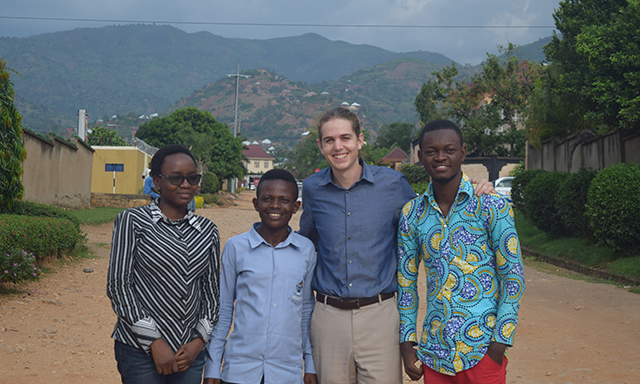Empowering African students to learn and lead
Growing up in Bozeman, Mont., Ben Dickensheets never imagined he would one day live and work in Burundi, an east African nation literally and figuratively half a world away.
Dickensheets, S.B. ’15, is director of the Tujenge Scholars Program, the flagship initiative of the Tujenge Africa Foundation, which works with Burundian students to develop leadership skills and empower them to attend universities globally.
“The students we get to work with here are absolutely phenomenal. They are really the most motivated, inspiring students you can imagine,” he said. “It is so gratifying to be able to play a role in their success.”
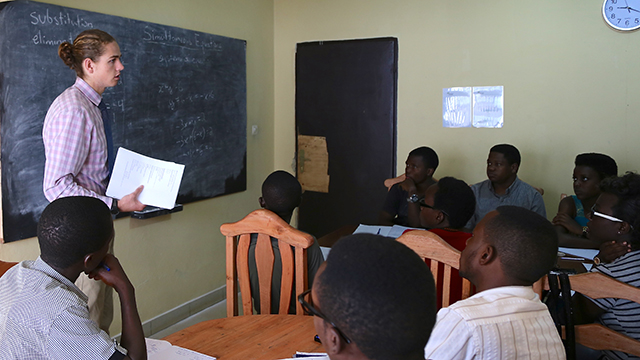
Dickensheets teaching a math lesson. (Photo courtesy of Ben Dickensheets)
Dickensheets’ own academic success had its foundations in the great outdoors of ‘big sky country,’ where he found ample testing grounds for his interest in building things. That passion for tinkering led him to pursue an electrical engineering concentration at the Harvard John A. Paulson School of Engineering and Applied Sciences.
Drawn to the problem-solving aspects of his electrical engineering coursework, he enjoyed examining the intricacies of how device components fit together. But Dickensheets’ most formative experiences occurred on the other side of the classroom dynamic; he served as a teaching fellow for four semesters.
“The combination of being in a supportive teaching role in engineering courses was something I discovered that I loved,” he said. “It is really exciting to watch students have this ‘ah-ha’ moment of understanding, which happens from time to time. But there is also something satisfying about helping someone work through a problem they didn’t imagine they’d be able to grasp.”
Teaching also helped Dickensheets learn. He challenged himself to think about ideas from different perspectives, and break down concepts so he could understand what aspects a fellow student might find confusing.
Through teaching, he developed patience and problem-solving skills that proved essential as he completed his capstone project, a quad-rotor drone that could be used for avalanche recovery search-and-rescue missions.
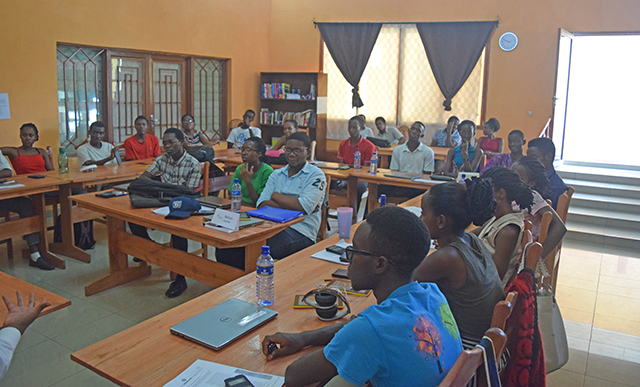
Students in the Tujenge Scholars Program learn math and English, but also focus on peace building and guidance counseling. (Photo courtesy of Ben Dickensheets)
Building off his experience in controls and radio frequency engineering, Dickensheets accepted a job as a launch engineer at SpaceX. He worked on the electrical command and control systems on the launch pad at Vandenberg Air Force Base in California.
At SpaceX, he designed systems for measuring and automating fluid flow, monitoring the liquid propellant onsite for rockets.
“There is an incredible about of complexity that goes into launching a rocket. Coordinating the logistics for projects—making sure you have all the parts you need for this new control system, for instance—was a major challenge,” he said. “But the fact that we were actually putting things into space, that never got old for me. At the launch site, you work for those moments. Watching this rocket that you’ve spent months and months working on lift off and leave the planet, that is an indescribable experience.”
But even as he was watching rockets zoom out of Earth’s atmosphere, Dickensheets was scanning the horizon for teaching opportunities.
He had met Etienne Mashuli and Wendell Adjetey, the co-founders of the Tujenge Foundation, after graduating from Harvard, and stayed in contact with them through his time at SpaceX. When they needed a director for the new scholars program in 2017, Dickensheets jumped at the opportunity.
The foundation is an educational nonprofit that focuses on Burundi because of its turbulent past and uncertain future. Virtually forgotten by the international donor community and racked by decades of genocidal violence, Burundi receives less than half the aid funding per capita of its East African neighbors. Education initiatives like the scholars program are the only ones of their kind in the entire country, which gives them an outsize role in shaping a hopeful outlook for the post-conflict nation, Dickensheets said.
The program launched with a cohort of 20 Burundian high school graduates who spent 18 months intensively focusing on leadership, English development, university preparation, guidance counseling, peace building, and other skills they would need as future leaders for the country, he explained.
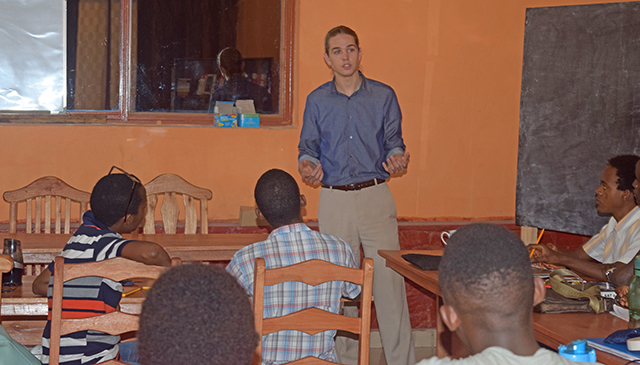
At the Tujenge Scholars Foundation, Dickensheets teaches math to students, while also contributing to administration, logistics, government paperwork, and upgrading and troubleshooting the IT infrastructure. (Photo provided by Ben Dickensheets)
It was very much in startup mode when Dickensheets came on board, and he was teaching math sections and helping students with university applications, while also working on administration, logistics, government paperwork, and upgrading and troubleshooting the IT infrastructure.
“It’s been a lot like you would find in a startup in Silicon Valley; it becomes a labor of love,” he said. “There is always a problem that needs to be solved. The experience has been really immersive, just diving into this ecosystem and trying to build an educational environment where these students have the opportunities to thrive and reach whatever potential they have.”
The program has already achieved some significant successes. All of the 20 students in the initial cohort have matriculated into universities in Europe, the U.S., and throughout Africa. In an especially proud moment for Dickensheets, one student he coached was accepted in the Harvard Class of 2022, and is considering electrical engineering.
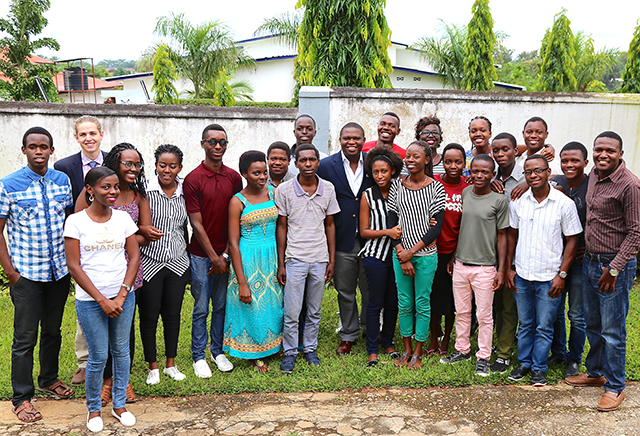
The Tujenge Scholars cohort. (Photo courtesy of Ben Dickensheets)
A second cohort began in January, and Dickensheets is enjoying the opportunity to learn from a diverse group of students as he helps them prepare for varied academic journeys.
“Our main objective is to take the future leaders of this country and not just give them the academic skills they need to thrive, but also put them together with students who have completely different backgrounds so they can develop respect for an open and honest dialogue,” he said. “If we can do nothing else but engender and instill in these students a respect for other people, for opinions they might not agree with, then I think this has been a really successful 18 months.”
